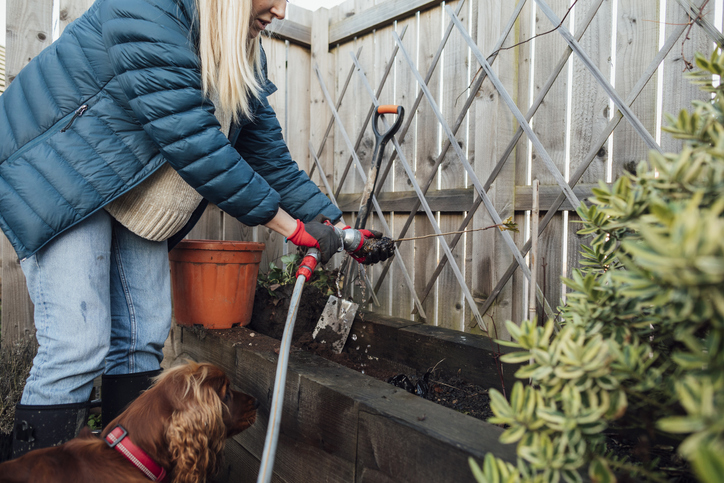
Thanks to the things you planted in the spring, you and your family enjoyed various fruits and vegetables. However, now that it’s winter, what are you supposed to do with your garden? Well, here are some great tips that, as a gardening enthusiast, you’ll appreciate.
Allow Nature to Take Its Course
Because of their genetic makeup, perennial plants adjust automatically as outside temperatures go from hot to cold. No, they’re not going to produce anything in the winter, but they’ll go dormant. Think of it like a bear that hibernates. They sleep, so to speak, until the weather changes.
For that reason, you don’t need to do much. Even so, there are ways that you can protect the plants to ensure they grow, flower, or produce fruits or vegetables next year.
Temperature Sensitive Plants
For plants and trees that don’t do as well “hibernating” in the winter, you’ll need to take a few precautions. Take cherry trees as an example. Often, the buds experience damage whenever there’s a hard freeze. The challenge is that you can’t see the damage until these trees begin to blossom in the spring.
To determine if there’s any damage, look at the petals. You’d notice brown spots. Depending on the severity, the entire bud might fall off the tree. Otherwise, once the flowers open in the spring, they’ll either fall off or appear brown. However, you can prevent damage to cherry trees and other blossoming plants. Rather than cover them with plastic, throw a bed sheet over them.
Planting in the Winter
Some people think they can’t plant anything in their gardens during the winter months. However, that’s not true. If the ground is soft enough to dig, then you can put certain plants in the group. Make sure you add mulch to provide the roots with a stable temperature. In addition, add organic compost but no more than three inches thick.
Container Plants
People who don’t have adequate land for a garden often grow things in containers. In this case, bring the plants inside at the start of winter. Also, use insecticidal soap and water to spray the leaves. Now, if you have kids or pets, be sure to choose a safe product. Along with that, put the plants in a place where they’ll receive a minimum of five hours of sunlight daily.
Don’t Fertilize Plants in the Winter
Remember, perennial plants become dormant in the winter. For that reason, you never want to fertilize them. If they begin to grow before the outside temperatures warm up, the plants will struggle to rejuvenate.
You might also like: Stay Safe In The 2023 Jeep Wrangler
Cut Back on Watering
Just as you would in the spring and summer, you’ll need to water your garden plants in the winter. There is one big difference. Water them just once a week if there’s no snow on the ground or if it hasn’t rained. Otherwise, they’ll have enough moisture to survive.